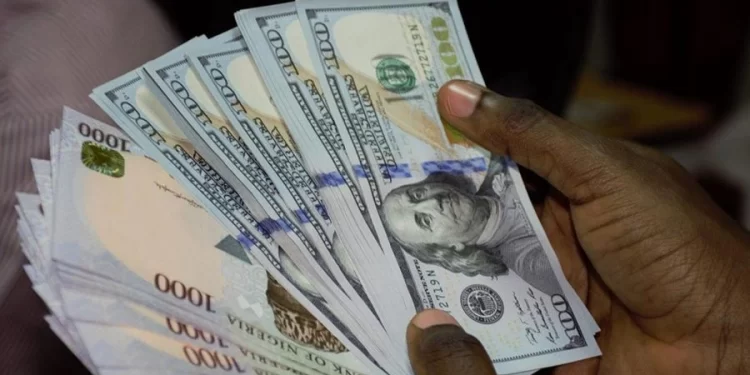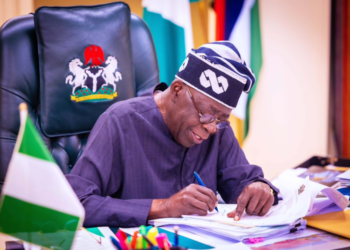Wednesday, July 20, 2022: The downswing in the value of the naira was so severe yesterday as the currency hit an all-time low against the dollar in the parallel market to close at about N640/$1. This is according to the information obtained from BDC operators in Lagos.
The currency, which stood at about N616/$1 in the parallel market as of the close of trading the previous day, shed off N24 to close at N640/$1. Representing an all-time low in the value of of the naira.
Our analysts interviewed some BDC operators and FX marketers in Lagos and found out that the sharp depreciation in the value of the naira against the dollar in the parallel market was a result of excess demand accompanied by shortages of dollars in the market.
Notably, the supply restriction of the dollar bedeviling the Investors and Exporters (I&E) Window which is the official foreign exchange market in Nigeria is spilling over to the black market as unmet demand in the official market is increasingly sought in the black market.
With the CBN’s tightened access to foreign exchange through the I&E window in a bid to prevent the naira from plunging, the pass-through effect on the black market is a continued exchange rate pressure in the market, and a widening gap between the rates quoted on the official and black markets–as of the end of trading on Wednesday, July 20, naira stood at N426.58/$1 and N640/$1 at the I&E window and black market respectively, representing a N213.42 premium.
An IMF team led by Ms. Jesmin Rahman, after concluding meetings with the Nigerian authorities in June stated that the improving trade balance, which has continued in 2022, is having a limited impact on Foreign Exchange (FX) strains with the exchange rate premiums in the parallel market staying in the 35-40 percent range since October 2021. Despite supportive oil prices, gross FX reserves fell to $38.6 billion at the end-May 2022, having reached $41.5 billion in September 2021 boosted by SDR allocation and Eurobond issuance.
What You Should Know?
The foreign reserve of Nigeria has remained in the N39 billion corridor partly due to the improved oil price. However, the friction in the market is a result of excess demand for the greenback.
One of the lasting solutions to foreign exchange shortages in the country is the improvement of export earnings.
Marketers say it is becoming increasingly difficult to buy the dollar and that the exchange rate may still rise further.










